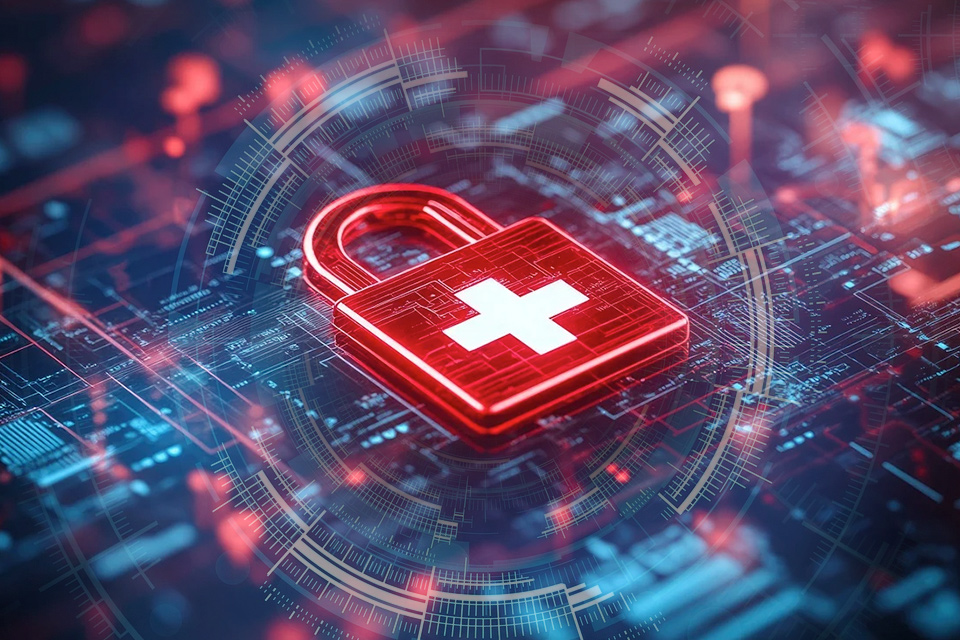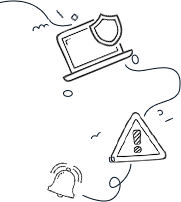Introduction
Cybersecurity isn’t just a technical checklist—it’s a high-stakes game of digital hide and seek, where what’s at stake is no less than Your personal and professional digital treasure! Protecting your digital assets is serious business, but let’s face it, it can also be a little entertaining.
When it comes to your personal healthcare information (PHI), laws are popping up faster than you can say “data protection.” The Health Insurance Portability and Accountability Act (HIPAA) is the big boss in the healthcare league, holding the reigns on patient data security. Sure, HIPAA compliance sounds about as exciting as watching paint dry, but its principles are like an all-you-can-eat buffet of valuable lessons that extend far beyond hospitals!
Small businesses in healthcare aren’t just playing a game of keep-away with patient information; they can learn from HIPAA’s gold-standard compliance to protect any sensitive data. Whether you’re in insurance, IT, or just curious about how to protect your own confidential information, let’s dive into the world of data protection—where the stakes are high, but the humor is always welcomed.
In fact, HIPAA principles can even enhance your cybersecurity strategy, no matter where you hang your virtual hat. So, whether you’re in the U.S. or sipping coconut water abroad, let’s explore how these compliance rules can benefit anyone handling sensitive data!
What is HIPAA and Why Does It Matter?
HIPAA lays down the law for healthcare providers, insurance firms, and even vendors who think it’s a good idea to play fast and loose with PHI. It’s kind of like the superhero of patient data, keeping the bad guys (a.k.a. unauthorized access) at bay.
But don’t let the healthcare focus fool you—HIPAA’s core principles of security, privacy, and accountability are like secret sauce that can spice up anyone’s data handling procedures. Think of HIPAA compliance as your trusty roadmap for managing all sorts of sensitive information: medical records, financial data, and even a coworker’s secret nacho recipe (we won’t tell!).
Though HIPAA is American-centric, the global perspective on data protection is evolving faster than you can say “data breach!” Numerous countries have regulations similar to HIPAA because, let’s be honest, by now we all know that data privacy isn’t just an American pastime.
So, let’s check out some of the HIPAA rules that healthcare professionals follow—and see how a sprinkle of these can help ANY organization manage their sensitive data like a pro.
Common Data Protection Principles
Even if you’re not donning scrubs or coding at a healthcare facility, the principles behind HIPAA compliance offer valuable nuggets of wisdom for guarding all kinds of sensitive information. Ready? Let’s go!
1. The Principle of Least Privilege
- HIPAA Rule: Access to PHI should be limited to just what’s essential for your job. Think of it as the “need-to-know” basis—like when a secret meeting is held at work that you definitely don’t need to be part of.
- General Application: In any field, sensitive info should only grace the eyes of those who truly need it. Help keep your trade secrets, client lists, or even the office playlist safe by giving access only to those who need it, minimizing the chance of leaks.
2. Data Encryption: Your Digital Bodyguard
- HIPAA Rule: Healthcare pros need to use encrypted channels to store and communicate data. No casual stroll through the digital park here!
- General Application: Encryption acts like your data’s bouncer, keeping it safe from prying eyes, particularly when sharing sensitive info online. You wouldn’t want a ‘secret’ to become public knowledge, right?
3. Everyone’s a Data Protection Expert!
- HIPAA Rule: Healthcare organizations must educate employees on how to protect PHI. You gotta spread the knowledge!
- General Application: Whether you’re flipping burgers or crunching numbers, training staff on data safety ensures nobody accidentally spills the beans! Teach them to spot scammy emails and handle info like it’s a rare collectible.
4. Weak Points? Time for a Security Check-up!
- HIPAA Rule: Healthcare providers must routinely assess risks and vulnerabilities in their systems. Nobody likes a surprise attack!
- General Application: Regular audits are smart for any business—not just healthcare. Identify risks, and address them like an overzealous parent at a talent show!
5. Incident Response Plans: What’s the Game Plan?
- HIPAA Rule: HIPAA requires a company-wide plan of action for breaches. It’s like having a fire drill, but for data disasters.
- General Application: Each business should have a contingency plan in place for potential breaches. Have a step-by-step guide ready that everyone is familiar with—just in case things go south!
6. Document Everything—No, Really!
- HIPAA Rule: You better believe HIPAA requires compliance policies to be documented. Seriously, keep track of things!
- General Application: In any industry, documenting processes is like setting a GPS before a long road trip—you’ll thank yourself later!
Let’s face it, cyber threats are like that party crasher who shows up unannounced. Hackers don’t discriminate between a hospital and a local bakery; they’re looking for any unlocked door. And every unprotected system is simply a welcoming mat for them. They want YOUR crucial data to sell on the Dark Web—so let’s keep that treasure locked up!
Protecting Your Sensitive Digital Assets
The fallout from a data breach is no laughing matter—financial disaster, bad press, and potentially a visit from the legal eagles could drain the life out of any organization. So what can we learn from the healthcare playbook that applies to the broader world?
- Stick to the Principle of Least Privilege. Grant folks access to only what they need to do their jobs—because nobody needs that level of gossip.
- Use encryption like it’s sunscreen for your data—protect it wherever it goes!
- Ensure everyone knows how to securely manage data and recognize potential threats—no one likes being the “oops” employee.
- Assess and address any weaknesses—no one wants to be the weakest link!
- Know your Incident Response Plan—it’s basically the emergency exit sign for data breaches.
- Document everything, as if you were jotting down every plot twist of your favorite soap opera!
Data protection isn’t merely about bending the knee to legal requirements; it’s about ensuring the privacy of the people behind that data. Whether it’s sensitive medical info or business secrets, HIPAA’s emphasis on security and accountability can nudge you toward stronger data protection practices.
Conclusion
While some might think cybersecurity is an exclusive concern for big-time companies or tech giants, the fact is every business—yes, even your favorite cupcake shop—is a potential target for cyber threats.
Remember the golden rule! Treat others the way you want to be treated. As a consumer, don’t you want companies to protect YOUR information? Squeaky clean data handling is the least we can do.
By embracing these best practices, you’re not just fortifying your organization, but you’re also building trust with customers and colleagues. Data security is everyone’s jam! The more we understand how to protect sensitive information, the safer we’ll





